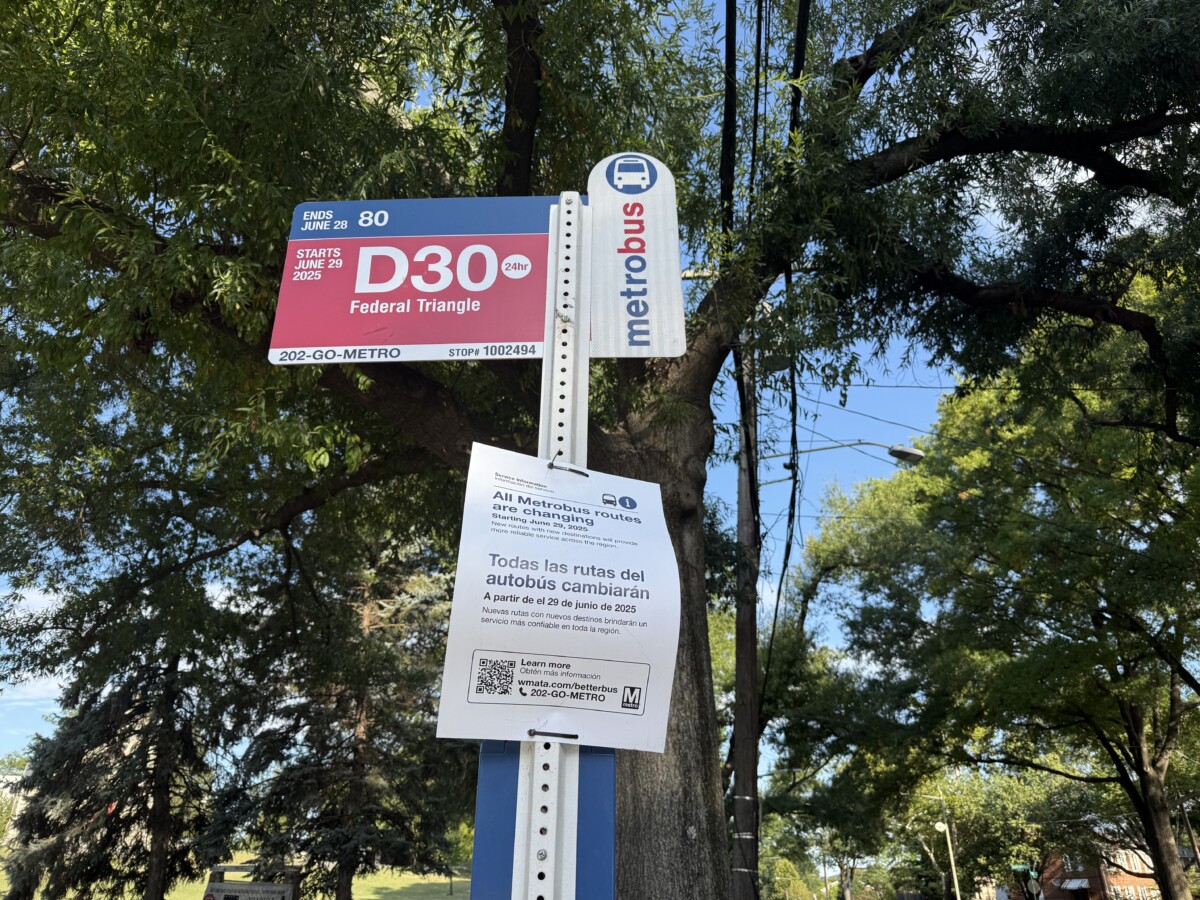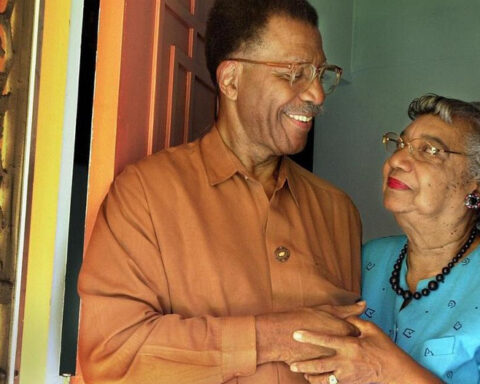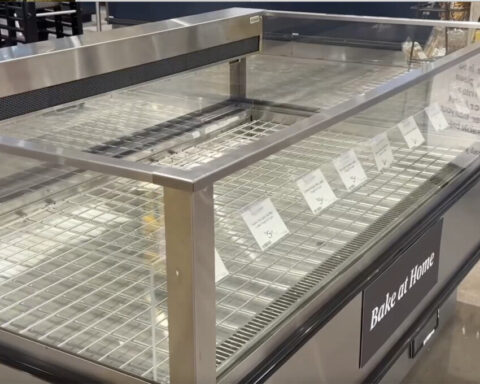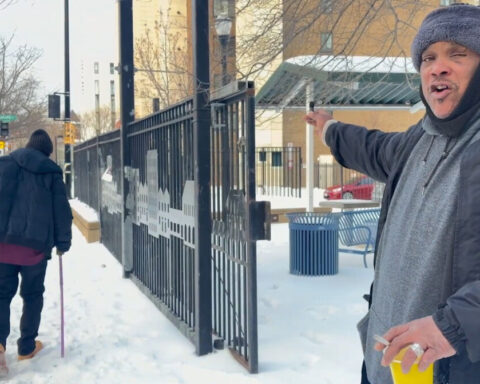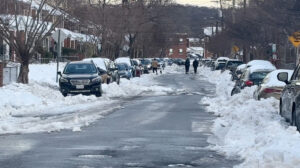Passengers throughout the region are taking on a big change as the Better Bus system introduced new routes over the summer and eliminated 527 stops, or 5% of the total. In Ward 5, some passengers want the old system back, some bus operators say their jobs are a little easier and everyone needs time to regroup.
MetroBus routes and names were changed June 29 through the Better Bus initiative. This marks the first major overhaul in 50 years, according to the Washington Metropolitan Area Transit Authority (WMATA).
“Things in the D.C. area have changed a lot in the 50 years since bus service started,” the authority said in its FAQs. “The Better Bus initiative was launched to rethink, redesign and revitalize bus service for the region.”
The authority added that some priorities were to make trips more frequent and reliable, reduce transfers and shorten wait times, and simplify route names and schedules.
However, passengers at the Brookland-CUA station in Ward 5 said the changes made it so they must take more buses than before to get to their destination and wait longer.
“I hate the new bus system; it’s confusing,” Eric Ford, 72, who is a Northeast resident, said. “They cut out routes that people need, and they added routes that people don’t need. Then, the bus schedules are confusing and the numbers and all that, people don’t know where they going, when they going.”
The Better Bus Network Redesign project was launched in 2022 and took three years to research, plan and get feedback from residents. WMATA said it spoke with over 15,000 people across the region for feedback this past spring and summer.
From these conversations, they found the following:
- 59% of passengers said they prefer longer overall trips to avoid transfers versus shorter trips with transfers
- There was an even split between preferring to walk farther for more-frequent bus routes and preferring a shorter walk to less-frequent bus routes
- 64% of people preferred a shorter walk to a less-direct or longer bus ride instead of walking farther for a more-direct, faster bus ride.
Tsahai, 31, a D.C. native, has been using the bus since high school.
“These new changes came very sudden, and I’m not comfortable with it,” she said. “They ask us to take surveys and some of the information I put in, it seemed like it was ignored. So, it’s frustrating.”
She added that the changes have affected how people around her view public transportation now.
“A few people I know even said that they just want to drive cars now. So that kind of defeats the purpose of what public transportation is supposed to be.”
In Ward 5, 18.6% of workers 16 years and older lived in households that did not have access to a vehicle, according to 2013-2017 data from EdScape short for education landscape.
Since the launch, about 200 bus stop signs have been identified to be fixed of inaccuracies and stops have been added where there was overcrowding, Albert Himes, director of WMATA’s Office of Bus Service Planning and Scheduling said in a late August community meeting.
The agency believes the initiative is going better than expected though it is not perfect, CEO Randy Clarke said in a Metro board of directors meeting on July 10.
“We’re looking at every comment, whether it’s on Reddit, other social media channels, all of our call center activity, emails, they’re all being looked at,” Clarke said. “Some of them are the same theme, and we’re working on things.”
A group of bus operators, who spoke under conditions of anonymity due to fear of being fired, said they feel that passengers were given a good amount of time to prepare with signs, news coverage and WMATA personnel who boarded buses and visited bus stations announcing the coming change. However, one said bus operators had little time to train.
There is confusion, another operator said, “but even the old bus system, it was the same way.”
“We still had to coach people in what buses to catch and stuff like that. The only difference this time is we don’t actually know all the bus routes from everywhere. So, it’s taking us some time to actually get used to it so we can help them out.”
Drivers shared that the new routes stay on main streets and have less difficult turns, which makes their work easier.
“We are driving more straight,” the same driver said. “We’re not going up in neighborhoods, making really tough turns, anything like that. So, that benefits us to cut down our accidents.”
However, some are concerned about their elderly passengers.
“The elderly people are really the main focus for myself, because sometimes they don’t have transportation and they can’t get up to the main streets and catch the bus,” he added. “That’s the main thing that I’m really worried about.”
Another operator said they wish the authority would have left the routes alone that serviced those who come and go from the MedStar Washington Hospital Center.
In Ward 5, 24.5% of seniors rely on the Metro bus, according to the D.C. Senior Advisory Coalition.
Passengers and operators are also concerned about elderly residents who rely on their phones for bus information, but might not be as tech savvy.
About 5% of stops were removed to speed up service, WMATA said. They focused on stops that were no more than 660 feet apart, assessed ridership at the stops and the availability of safe access for customers, according to its bus consolidation document.
Ford said he feels that more stops were cut from predominately Black neighborhoods than those from the majority white neighborhoods.
“The Blacks now got a harder time of getting back and forth to work,” he added.
One operator disagreed: “I think they just made it so it’s more convenient for us. I don’t think they purposely cut out the Black neighborhoods.”
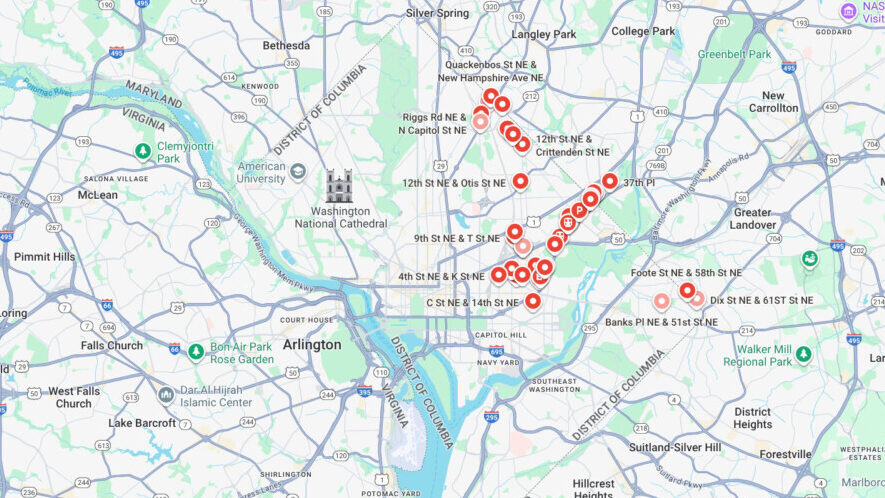
During the engagement process, WMATA said it “focused on historically underrepresented communities: People from low-income households, people of color, people with disabilities, seniors, youth, people with limited English proficiency and people without smartphones.”
For William Coar, a Ward 5 resident, not much has changed. Coar said he doesn’t have any complaints or praises since the routes he takes are mostly the same.
Bus operators said they believe people with complaints simply need time to get used to the changes.
“It takes people a lot of time to get used to everything,” a driver said. “So, that’s what’s going on.”
“When you change something, it’s going to be definitely a lot of confusion. I feel like after a while, people get used to it.”
Damenica Ellis covers Ward 5 for HUNewsService.com.

